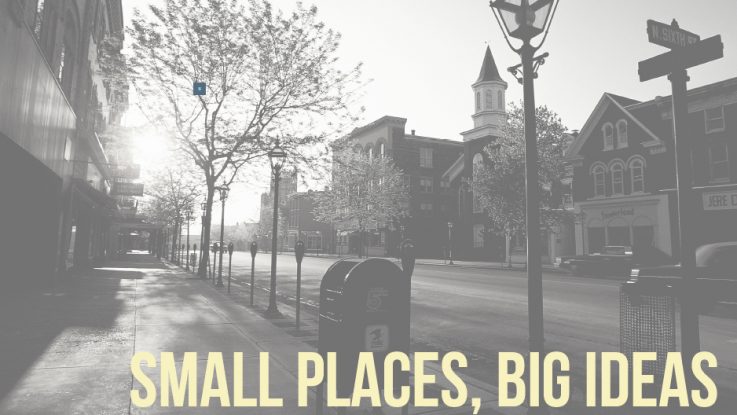
A dominant theme emerges at every Smart Cities Connect Conference & Expo, now in its fourth year. The annual conference is an opportunity to reflect on the past, acknowledge the present, and look towards what is next.
From the opening event, the Smart 50 Awards, it quickly became clear that the smart cities movement has matured. The frenetic chaos of the early years has been replaced with a more thoughtful dialogue about how sectors and communities can come together and realize the promise of connected technology and resulting data. There was more attention given to foundational technologies like 5G, AI, and whether data should be processed in the cloud or the edge, or both. In other words, the tone went from emergency to convergency.
Using the analogy of high school, the municipalities and accompanying city leaders who leveraged the US Department of Transportation’s Smart City Challenge in order to respond first and fast to the promise of smart cities have earned their place at the top. Cities like Denver, Columbus, and San Diego are scaling their early pilots into measurable impact. They rule the school by way of establishing collaborative models across departments and industry sectors. And they are helping the incoming class of smaller municipalities along the way.
Likewise, the private sector has come a long way. Senior leaders have learned to drop the sales talk and instead ‘speak city’. They know that in order to have the ear of municipal leaders, they must first understand the unique challenges and needs of that community. The A+ students convene resources to support city leaders. For example, Dell EMC listed its core value as “leveraging data insight to continuously improve service delivery” and on the same slide listed “sharing insight across the ecosystem”.
When you see the public and private sectors coming together in a way that benefits consumers and residents alike, it is a sure fire sign that graduation is near. In addition, more clustered activity is forming, for example, the 2019 Small Places, Big Ideas Innovation Cohort, the Urban Data Project, and Soofa City Development Fellowship.
The Small Places Big Ideas Innovation Cohort is an initiative of ELGL (Engaging Local Government Leaders) and UrbanLeap. Together the two organizations are partnering with resource-strapped small and rural governments to identify a shared local issue, discover potential solutions, select a subset to pilot, and then share results, learning, and best practices garnered from the process. ELGL brings the collective energy and intelligence of a 3,000-member organization, while UrbanLeap provides the technology platform and expertise.
Another example of industry coming together to support a broader cause is The Urban Data Project, a combination of new technology and transparent policies on privacy and trust. Instead of realizing the short-term gains that can come from a disrupted marketplace, tech leaders including Telensa, Microsoft, and Qualcomm are taking it upon themselves to begin the difficult process of establishing standards and inviting city leaders, community advocates and all who are interested to participate in the practice.
In the short term, The Urban Data Project will produce guides and policy papers to help shepherd government leaders through the process. Project leaders state, “it’s our ambition to enable cities to manage this urban data to elevate everyday city life, provide better services, and create new revenue streams. As more cities join the Urban Data Project, we’ll start to change the world for the better.”
The Soofa City Development Fellowship is an effort to “collaborate with cities to develop success metrics for measuring the value of civic technology pilots.” Yet another example of a private sector player working across municipalities, identifying a trend of combined need, and leveraging their strengths to support the ecosystem. The effort will deploy fellows over a four-week period to “learn what it takes to get a technology pilot off the ground, what’s most important to measure and why, and what is required to expand the pilot to a scaled deployment so it can have a larger impact on more people.”
Hopefully this effort for industry to bring their resources to advance a common good is the first of many. The great promise of smarter cities is to use technology to realize efficiencies, increase prosperity, and create a better quality of life for all residents. Achieving these lofty goals requires transparency, collaboration, and an established level of trust. If realized, this can create an entire new era of resident and government relationships. It is heartening to see projects like the Small Places Big Ideas Innovation Cohort and The Urban Data Project make strides in this direction. By taking the long-term view, it may be possible that everyone really can win.